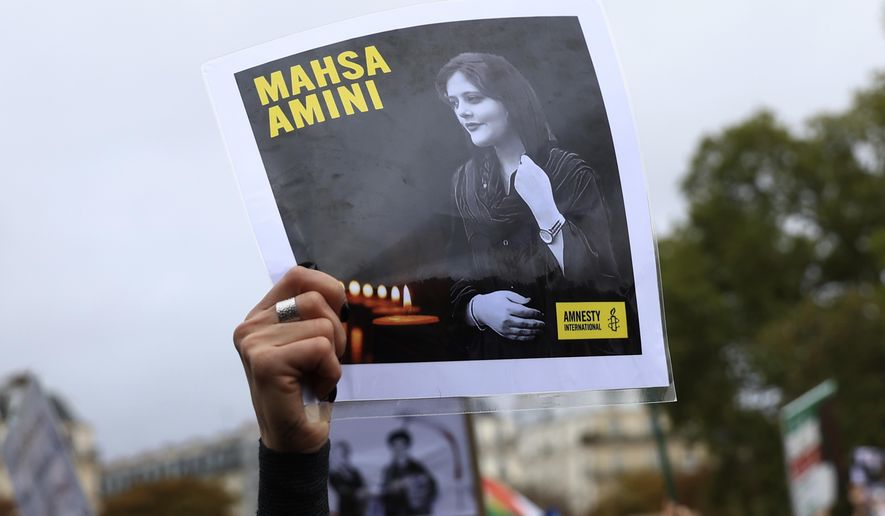Two expatriate Christians say a spiritual transformation is underway in Iran, fueled part by sustained protests over the Sept. 22 death of Mahsa Amini, the Kurdish-Iranian student who died in the custody of the Islamist regime’s “morality police” allegedly for improperly wearing the mandatory head covering for women known as the hijab.
“Spiritually speaking, there has been a revival going on in Iran,” said Hormoz Shariat, president of Dallas-based Iran Alive Ministries, which broadcasts Christian programming in the Islamic Republic.
Mr. Shariat, who became a Christian while studying in the U.S., said in an interview he was challenged to share his faith with Muslims in his homeland after the Tehran regime imprisoned and executed his brother, Hamraz.
“I felt God strongly speak to my heart that those who killed my brother are not my enemies,” he said. Instead, he said God told him to “love those who killed your brother. Love them so much that you can share the good news with them.”
“Iran has the fastest-growing evangelical population in the world,” Mr. Shariat said. “Iranians are done with Islam, [they are] very open to other religions, including Christianity. That’s why we see such a fast growth of Christianity.”
He said Iranians are “sick and tired of the violence in Islam, the hatred in Islam and the revenge in Islam. They don’t want that and that’s what they see in the Quran and implemented by the government. So there is a spiritual openness to the people of Iran.”
A 2020 survey of 50,000 Iranians by a research firm called Gamma found only 32% of respondents affirming a belief in Islam, with 33% saying either that there is no God or that religion is not relevant to daily life. The remaining third was exploring “everything but Islam” as a spiritual option.
He said satellite broadcasting can’t be blocked by the Iranian state, unlike internet access. Viewers, he said, are responding as never before.
“We have the names of over 90,000 Muslims who have contacted us and prayed to receive Christ,” Mr. Shariat said. He said “there’s probably multiple times that number who have already made the decision to follow Christ,” but that it’s difficult to get accurate figures.
The Rev. Lazarus Yeghnazar, a former top translator for Iran’s war ministry and budget ministry, emigrated to England 36 years ago following the Iran-Iraq war. He now heads Transform Iran, a faith-based humanitarian outreach “to the desperate” in that country.
He said in an interview that members of the 70 underground churches his group supports are ministering to protesters and others in the streets.
“They take bandages in their backpacks, find people suffering, and bless them,” Mr. Yeghnazar said from his home in Oxford, England. “Some of these doctors have been beaten so badly, now they need assistance.”
He said the months of protests against the regime — which have led to street clashes, dozens of executions of protestors and only perfunctory changes by the government — have created a worsening economic climate in a nation already buffeted by Western sanctions.
“The sad reality is a few million people have been without a job for two or three months now,” Mr. Yeghnazar said. “The hardship is setting in. This is why I’m saying there is a human catastrophe waiting, and we must get ready.”
At the same time, Mr. Yeghnazar said, Iran’s 1 million Christians are viewed by the government as a “fifth column” and could be subject to further persecution, which he predicted would be “an absolute humanitarian disaster 100 times worse” than the persecution of Christians seen in neighboring Afghanistan after the Taliban regained power in 2021.
“I think this is the time for preparation,” he said. “I am deeply concerned about what will happen in a year’s time.”
• Mark A. Kellner can be reached at mkellner@washingtontimes.com.




Please read our comment policy before commenting.